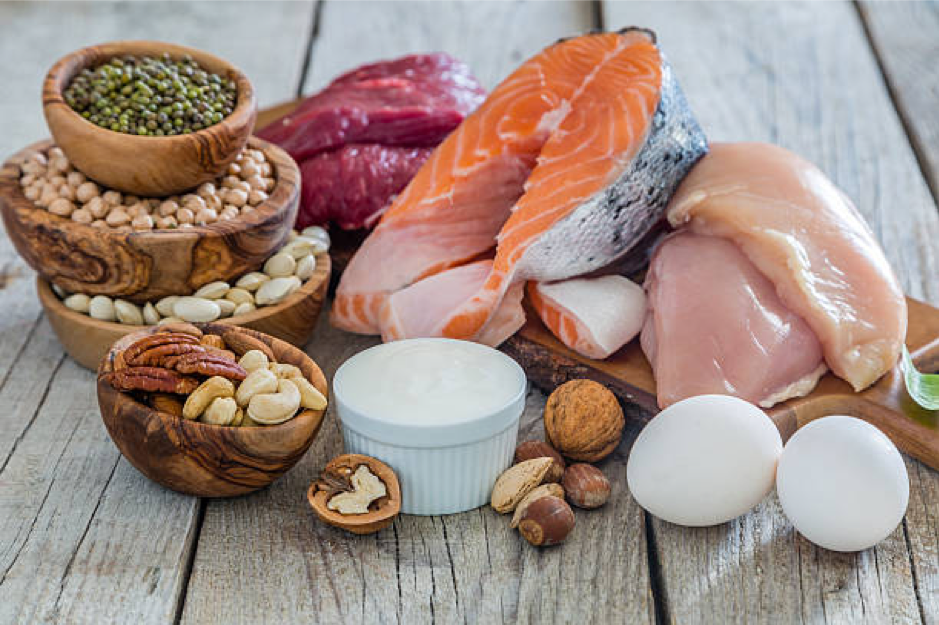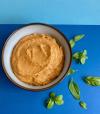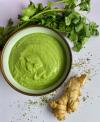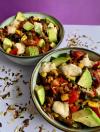
Protein containing foods provide the building blocks to repair body cells
including hair, nail, skin and muscle. It helps to provide strength, repair
injuries and to help the body recover from surgery. Protein also has a role to
play in protecting our body from illness, reducing muscle weakness and fatigue
after movement. It is also a major component in enzyme and hormone production
which helps us to digest our food and burn stored energy, including body fat.
What happens if you don’t get enough protein?
Lack of protein in the diet can result in hair loss, muscle wasting, poor
immunity and impaired weight loss.
Why does protein need to be a major focus for bariatric patients?
Following bariatric surgery, the amount of food eaten is much smaller due to
reduced stomach capacity. This is particularly true in the earlier stages
post-surgery. Eating small amounts means it is much harder to meet daily protein
requirements. Often protein shakes are required initially to help people to get
enough protein from a form that is easier to manage. Further down the track,
protein requirements are more easily met through whole foods as portion sizes
gradually increase. Regardless of what stage post-surgery however, the protein
component of a meal should always be prioritised over fruits, vegetables and
carbohydrates to ensure this important nutrient is never displaced.

How much protein do you need each day?
Individual protein requirements can vary considerably particularly between
different genders, age groups, activity levels and where people are in their
recovery post-surgery. A minimum of at least 60g-80g of protein each day is a
good amount to aim for, however more specific protein requirements can be
calculated using an adjusted body weight.
How to work out an adjusted body weight:
To calculate an adjusted body weight:
- Work out the weight your body would be if you had a BMI of 25 (use online BMI
calculators or speak with your dietitian if assistance is needed)
https://www.health.govt.nz/your-health/healthy-living/food-activity-and-sleep/healthy-weight/healthy-weight-bmi-calculator
- Work out the difference between your weight at a BMI of 25 and your current
weight
- Multiply the difference by 0.25
- Add this figure to your weight at a BMI of 25 This will give you your
adjusted ideal body weight. From here, protein requirements can be determined
by adding 1 gram of protein per kilogram of adjusted body weight.
E.g. if you were 1.75m tall and weighed 130kg
BMI of 25 = 76.5kg
130kg – 76.5kg = 53.5
53.5 x 0.25 = 13.4
76.5 + 13.4 = 89.9
Therefore 90g of protein per day would be a good target to aim for (30g per
meal).
How to fit protein into your day:
Protein is best split across three meals to ensure you feel satisfied after
meals and have plenty of energy to get you through the day. People may feel the
need to snack between meals if they have gone for long periods without eating,
if they are particularly active, or if they don’t have enough protein at one or
more of their meals. The protein tables below can be useful to work out how much
protein is in various foods and what can be added together to help you to better
meet approximately one third of your daily protein needs at each meal. If you
feel you do need something in between your meals, consider having a milky drink
or glass of milk as a nutritious way to boost your protein intake and provide
hydration as well.

Should you include more products labelled ‘high protein’ into your diet?
Not necessarily! It is best to include whole food sources of protein such as
meat, fish, chicken, eggs, tofu, legumes and dairy products. These foods also
contain other important nutrients such as certain vitamins and minerals, fibre
if from a plant-based source (e.g. legumes), and omega 3 from oily fish. Many
products labelled ‘high protein’ may not have much else to offer nutritionally.
Examples of such foods include protein bars, protein cookies and flavoured
protein milks. The marketing behind many products can make grocery shopping
difficult to navigate, but remember if there is a long list of ingredients, its
likely there is a much better choice to go for. Discussing your individual
protein needs and dietary choices with your practice dietitian is recommended
and of course regular blood tests are important to monitor your protein status.
Meat and meat alternatives
| Food |
Average serve |
Protein per average serve (g) |
Protein per 100g |
| bacon (rindless) |
50g |
14.7 |
29.4 |
| baked beans (lite, tinned) |
100g |
4.2 |
4.2 |
| Beef (scotch fillet) |
100g |
30.1 |
30.1 |
| black beans (tinned) |
120g |
8.2 |
6.8 |
| calamari (fresh) |
110g |
21.1 |
19.2 |
| cannellini beans (tinned) |
120g |
8.8 |
7.3 |
| chicken (fresh) |
100g |
19.8 |
19.8 |
| chicken (smoked) |
100g |
17.9 |
17.9 |
| chicken (tinned) |
85g |
16.6 |
19.5 |
| chickpeas (tinned) |
120g |
9.5 |
7.9 |
| edamame beans |
80g |
9.9 |
12.3 |
| Eggs |
2 eggs |
13.2 |
24.4 |
| falafel |
60g |
3 |
5 |
| fish (fresh) |
100g |
25.2 |
25.2 |
| fish (frozen, crumbed) |
100g |
11 |
11 |
| ham (lean, sliced) |
50g |
7.8 |
15.7 |
| hummus |
15g (1 tablespoon) |
1 |
6.9 |
| jackfruit |
60g |
0.5 |
0.9 |
| kidney beans (tinned) |
120g |
9 |
7.5 |
| Lamb (fillet) |
100g |
27.9 |
27.9 |
| lentils (tinned) |
120g |
6.7 |
5.6 |
| mince |
120g (1/2 cup) |
23.3 |
19.4 |
| mussels |
100g |
14.7 |
14.7 |
| oysters |
110g |
14.4 |
13.1 |
| Pork (fillet) |
100g |
28.1 |
28.1 |
| prawns |
100g |
23.7 |
23.7 |
| quorn |
75g |
11.2 |
14.9 |
| salmon (fresh) |
100g |
19.3 |
19.3 |
| salmon (smoked) |
50g |
11.2 |
22.4 |
| salmon (tinned) |
95g tin |
13.2 |
23.1 |
| sardines (tinned) |
125g tin |
18.5 |
20.5 |
| scallops |
110g |
16.4 |
14.9 |
| tempeh |
75g |
13.9 |
18.5 |
| tofu |
75g |
8.7 |
11.6 |
| tuna (fresh) |
100g |
23.3 |
23.3 |
| tuna (tinned) |
95g tin |
18.6 |
26.6 |
| venison |
100g |
27.7 |
27.7 |
Dairy and dairy alternatives
Milk
| Food |
Average serve |
Protein per average serve (g) |
Protein per 100g |
| almond (un-sweetened, calcium fortified) |
250ml |
1.4 |
0.5 |
| coconut (un-sweetened) |
250ml |
0.5 |
0.2 |
| cows (calci-trim) |
250ml |
12.2 |
4.9 |
| goats |
250ml |
7.3 |
2.9 |
| oat (un-sweetened, calcium fortified) |
250ml |
1.7 |
0.7 |
| rice (un-sweetened, calcium fortified) |
250ml |
0.9 |
0.4 |
| soy (calcium fortified) |
250ml |
8 |
3.2 |
Cheese
| Food |
Average serve |
Protein per average serve (g) |
Protein per 100g |
| blue cheese |
40g |
8.7 |
21.7 |
| brie |
40g |
5.8 |
14.6 |
| camembert |
40g |
9 |
22.6 |
| cheddar |
40g |
11.8 |
29.6 |
| cottage cheese |
40g |
5.5 |
13.7 |
| cream cheese |
40g |
4.2 |
10.5 |
| feta |
40g |
6.8 |
16.9 |
| gouda |
40g |
10.1 |
25.2 |
| haloumi |
40g |
8 |
20 |
| mozzarella |
40g |
11 |
27.6 |
| ricotta |
40g |
4.1 |
10.3 |
Yoghurt
| Food |
Average serve |
Protein per average serve (g) |
Protein per 100g |
| almond based |
125g |
3.8 |
3 |
| coconut based |
125g |
1 |
0.8 |
| cows based |
125g |
6 |
4.8 |
| high protein cows based |
125g |
10.3 |
8.2 |
| soy based |
125g |
6.3 |
5 |
Fats and oils
| Food |
Average serve |
Protein per average serve (g) |
Protein per 100g |
| avocado |
40g |
0.7 |
1.8 |
| almond butter |
15g |
3.3 |
22 |
| nuts (natural, mixed) |
30g |
5 |
16.6 |
| peanut butter |
15g |
4 |
26.7 |
| seeds |
15g |
3.4 |
22.8 |
Fruit
| Food |
Average serve |
Protein per average serve (g) |
Protein per 100g |
| average all fruits |
80g |
0.5-1g |
1-2g |
Non-starchy vegetables
| Food |
Average serve |
Protein per average serve (g) |
Protein per 100g |
| average all non-starchy vegetables |
80g |
0.5-2g |
1-2g |
Starchy vegetables
| Food |
Average serve |
Protein per average serve (g) |
Protein per 100g |
| corn |
80g |
2.9 |
3.6 |
| kumara (sweet potato) |
80g |
1.1 |
1.4 |
| potato |
80g |
1.4 |
1.7 |
| taro |
80g |
1 |
1.3 |
| yams |
80g |
1.4 |
1.7 |
Breads, cereals and grains
Bread
| Food |
Average serve |
Protein per average serve (g) |
Protein per 100g |
| bagel |
½ (45g) |
4.8 |
9.7 |
| crumpet |
1 (50g) |
3.3 |
6.6 |
| English muffin |
½ (40g) |
4.4 |
10.9 |
| mountain bread |
1 (25g) |
2.6 |
10.4 |
| Vogel’s (thin sliced) |
1 slice (28g) |
2.8 |
9.8 |
| white bread |
1 slice (40g) |
3.3 |
8.3 |
| wholemeal bread |
1 slice (40g) |
3.5 |
8.5 |
| wholegrain bread |
1 slice (40g) |
3.9 |
9.8 |
| wrap |
1 wrap (60g) |
4.4 |
7.4 |
Cereals
| Food |
Average serve |
Protein per average serve (g) |
Protein per 100g |
| bran flakes |
30g |
3.5 |
11.7 |
| cornflakes |
30g |
2.5 |
7.5 |
| muesli (toasted) |
¼ cup |
3.1 |
10.3 |
| muesli (untoasted) |
¼ cup |
3.5 |
11.6 |
| oats |
¼ cup |
3.8 |
12.5 |
| Weetbix ™ |
30g |
3.6 |
12 |
Crackers
| Food |
Average serve |
Protein per average serve (g) |
Protein per 100g |
| Corn Thins ™ |
2 |
1.2 |
10.2 |
| Cruskits ™ |
2 |
1.3 |
11.4 |
| rice cakes |
2 |
0.8 |
8 |
| rice crackers |
8 |
0.6 |
3.8 |
| Ryvita ™ |
2 |
1.7 |
8.5 |
| Salada ™ |
6 small squares |
2.4 |
8.8 |
| Vitaweat ™ |
4 |
2.8 |
12.1 |
Grains
| Food |
Average serve |
Protein per average serve (g) |
Protein per 100g |
| barley |
60g |
1.6 |
2.7 |
| brown rice |
60g |
1.9 |
3.2 |
| buckwheat |
40g |
4.3 |
10.8 |
| bulgar wheat |
60g |
1.8 |
3.1 |
| cous cous |
60g |
4 |
6.7 |
| noodles (egg) |
60g |
1.4 |
2.3 |
| noodles (rice) |
60g |
1.2 |
2 |
| noodles (soba) |
60g |
6.5 |
10.9 |
| pasta (black bean) |
40g |
17.9 |
44.6 |
| pasta (edamame) |
40g |
17.1 |
42.9 |
| Pasta (white) |
60g |
3 |
5 |
| pasta (wholegrain) |
60g |
3.8 |
6.3 |
| quinoa |
60g |
2.6 |
3.4 |
| white rice |
60g |
1.7 |
2.8 |
| wild rice |
60g |
2.4 |
4 |





